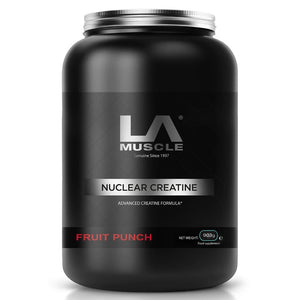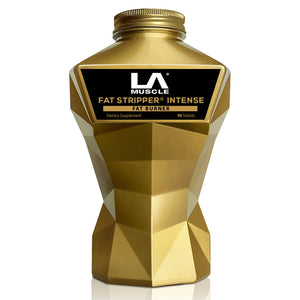
Gut health has become a hot topic in wellness, with products claiming to improve everything from digestion to mood. But are gut health products really as beneficial as they claim to be? With many options available, from probiotics to digestive enzymes, it's worth investigating which ones work, how to take them, potential side effects, and the realistic benefits they offer. Let’s dive into the world of gut health products and see if they live up to the hype.
Why Is Gut Health So Important?
The gut houses trillions of bacteria that influence everything from digestion to immune function and even mental health. A balanced gut microbiome can aid in digestion, support the immune system, reduce inflammation, and improve mental clarity and mood. However, modern diets, stress, and certain medications can disrupt this balance, leading many people to turn to supplements to restore harmony.
Types of Gut Health Products
-
Probiotics – These are live bacteria and yeasts that help balance gut flora. Available in pills, powders, and fermented foods, probiotics aim to introduce beneficial bacteria to the gut.
-
Prebiotics – Unlike probiotics, prebiotics are fibers that feed the good bacteria in your gut, promoting their growth.
-
Digestive Enzymes – These are enzymes that help break down food, making it easier for your body to absorb nutrients and reduce bloating and discomfort.
-
Fiber Supplements – Fiber, especially soluble fiber, can aid in digestion, promote healthy bowel movements, and support beneficial gut bacteria.
-
Herbal Supplements – Some herbs, like ginger and peppermint, have been used to soothe the gut and improve digestion.
Which Products Are Actually Beneficial?
ProbioticsThe Good: Probiotics have been shown to help with digestive issues, including diarrhea, bloating, and irritable bowel syndrome (IBS). They may also boost immune function and support mental health by improving gut-brain communication.
The Bad: Probiotics don’t work for everyone, and the effects can vary depending on the strain and the individual. Some people experience mild side effects, such as gas or bloating, especially when starting out.
How to Take: Take probiotics on an empty stomach for better absorption. Choose a product with a variety of strains (e.g., Lactobacillus and Bifidobacterium) and aim for at least 1 billion CFUs (colony-forming units).
Duration: Most experts recommend at least a month to see results. Consistency is key for long-term benefits.
PrebioticsThe Good: Prebiotics are beneficial for feeding and nourishing the existing good bacteria in your gut. They can improve digestion, immune health, and the growth of beneficial bacteria.
The Bad: Overdoing prebiotics can lead to bloating and gas, particularly for those with sensitive digestive systems or conditions like IBS.
How to Take: Prebiotics are often found in foods like garlic, onions, and bananas. Supplements can be taken with meals to minimize digestive discomfort.
Duration: Prebiotics can be taken daily for ongoing gut support.
Digestive EnzymesThe Good: Digestive enzymes can be helpful for people with certain digestive conditions, like lactose intolerance or those who experience bloating after meals. They help break down food more effectively, easing digestion.
The Bad: Digestive enzymes can sometimes lead to nausea or stomach cramps if taken on an empty stomach or without a specific need. Over time, some people may find their body becomes reliant on them for proper digestion.
How to Take: Take enzymes right before meals. Look for specific enzymes depending on your needs (e.g., lactase for dairy digestion or protease for protein).
Duration: Short-term use is best. Long-term use should be discussed with a healthcare provider.
Fiber SupplementsThe Good: Fiber supplements promote regularity, reduce bloating, and feed beneficial bacteria in the gut. They can also support heart health by lowering cholesterol levels.
The Bad: Too much fiber too quickly can lead to bloating, gas, and discomfort. People with certain gut conditions should be cautious with fiber intake.
How to Take: Fiber supplements should be taken with plenty of water to prevent constipation. Start with a small amount and gradually increase to avoid digestive distress.
Duration: Fiber supplements can be taken long-term but work best in conjunction with a fiber-rich diet.
Herbal SupplementsThe Good: Herbal supplements like ginger and peppermint have been used for centuries for their digestive-soothing properties. They can help relieve nausea, bloating, and discomfort.
The Bad: Some herbs may interact with medications or worsen certain conditions. For instance, peppermint may aggravate acid reflux in some people.
How to Take: Herbal supplements can be taken in tea, tincture, or pill form. Follow dosage recommendations carefully.
Duration: Use as needed, though long-term use of certain herbs should be reviewed with a healthcare professional.
Potential Side Effects of Gut Health Products
While generally safe, gut health products can cause mild side effects, including:
- Bloating and gas: Common with both prebiotics and probiotics, especially when starting out.
- Digestive discomfort: This can happen if you take too many enzymes or fiber without adequate water.
- Headaches or nausea: These can occur with some herbal supplements or if gut health products are taken on an empty stomach.
If you experience severe side effects, discontinue use and consult a healthcare provider.
How Long Should You Take Gut Health Products?
The duration of use for gut health products depends on individual needs and goals. Many products, like fiber and prebiotics, can be part of a daily routine for ongoing benefits. Probiotics generally take a few weeks to show noticeable effects, while digestive enzymes are typically used only when needed. If you have a specific health concern, consult with a healthcare provider before starting a supplement regimen.
Bottom Line: Are Gut Health Products Worth It?
Gut health products can offer genuine benefits, but their effectiveness varies from person to person. Probiotics and prebiotics generally provide the most noticeable improvements in digestion and gut function, especially when used consistently and with high-quality products. Digestive enzymes can be a good short-term solution for digestion support, while fiber and herbal supplements can also be beneficial if used correctly.
For best results, combine gut health products with a balanced diet rich in whole foods, fiber, and fermented foods. Remember, supplements are just that—supplements. They’re meant to enhance, not replace, a healthy diet and lifestyle.


























